 EDITOR'S PICK
EDITOR'S PICK
Rivian CEO Says It 'Blows My Mind' That The US Auto Industry Is Reprioritizing Capital Toward Gas-Powered Vehicles
26 Aug 2025 | Synopsis
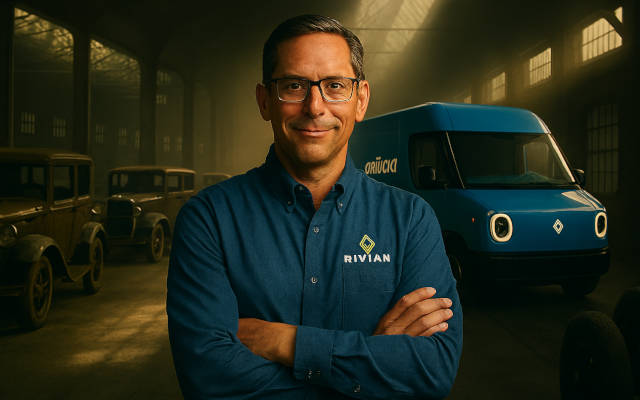 Rivian CEO RJ Scaringe criticized continued U.S. investment in internal combustion engine (ICE) vehicles, calling it a strategic mistake. He argued that pouring billions into gas-powered platforms delays progress and risks falling behind global EV leaders. Scaringe emphasized that electrification is inevitable and that legacy automakers must pivot faster to remain competitive in a rapidly shifting market.
Rivian CEO RJ Scaringe criticized continued U.S. investment in internal combustion engine (ICE) vehicles, calling it a strategic mistake. He argued that pouring billions into gas-powered platforms delays progress and risks falling behind global EV leaders. Scaringe emphasized that electrification is inevitable and that legacy automakers must pivot faster to remain competitive in a rapidly shifting market.Electric Aviation's Summer Surge: Startups, Certification, and the Race to Redefine Flight
25 Aug 2025 | Synopsis
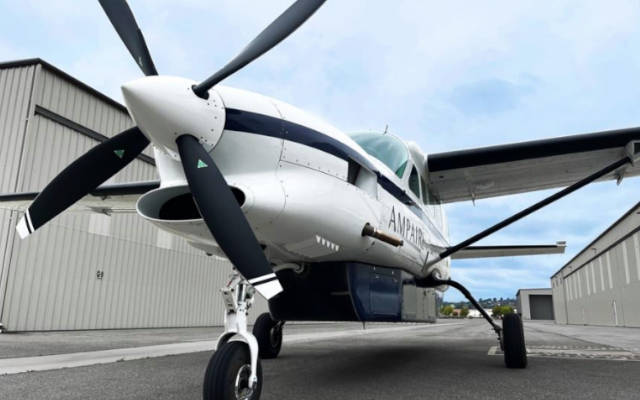 Electric aviation is accelerating as startups like Joby, Archer, Ampaire, and ZeroAvia push toward FAA certification and commercial launch. New FAA rules streamline approval for powered-lift aircraft, while propulsion strategies—battery, hybrid, and hydrogen—diversify range and infrastructure needs. Despite regulatory hurdles, investor confidence and airline partnerships signal that 2025 may be the breakout year for sustainable flight.
Electric aviation is accelerating as startups like Joby, Archer, Ampaire, and ZeroAvia push toward FAA certification and commercial launch. New FAA rules streamline approval for powered-lift aircraft, while propulsion strategies—battery, hybrid, and hydrogen—diversify range and infrastructure needs. Despite regulatory hurdles, investor confidence and airline partnerships signal that 2025 may be the breakout year for sustainable flight.Ford Is A Bellwether: Electric Vehicles Are Coming, Despite Policy Shifts By Oil Bought-Off American Presidency
25 Aug 2025 | Synopsis
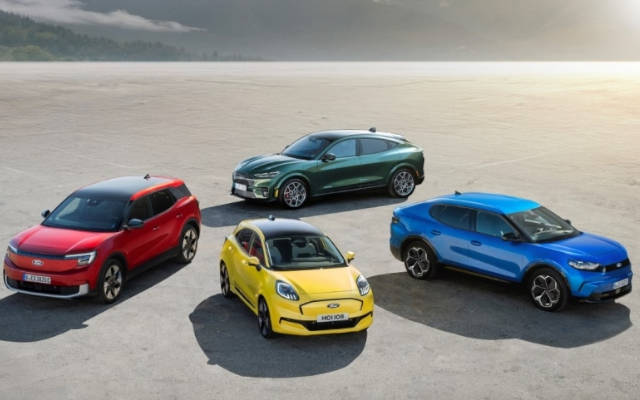 Despite Trump's rollback of EV incentives and emissions rules, Ford is doubling down on electrification. It announced a $5B investment in a modular EV platform and a sub-$30K electric pickup by 2027. Driven more by Chinese competition than U.S. politics, Ford aims to streamline production and stay globally competitive. EV sales remain strong outside Tesla, and legacy automakers are shifting toward affordable models and lithium iron phosphate batteries.
Despite Trump's rollback of EV incentives and emissions rules, Ford is doubling down on electrification. It announced a $5B investment in a modular EV platform and a sub-$30K electric pickup by 2027. Driven more by Chinese competition than U.S. politics, Ford aims to streamline production and stay globally competitive. EV sales remain strong outside Tesla, and legacy automakers are shifting toward affordable models and lithium iron phosphate batteries.An EV Road User Charge Is Looming. Could It Slam The Brakes On Australia's Clean Car Transition?
25 Aug 2025 | Synopsis
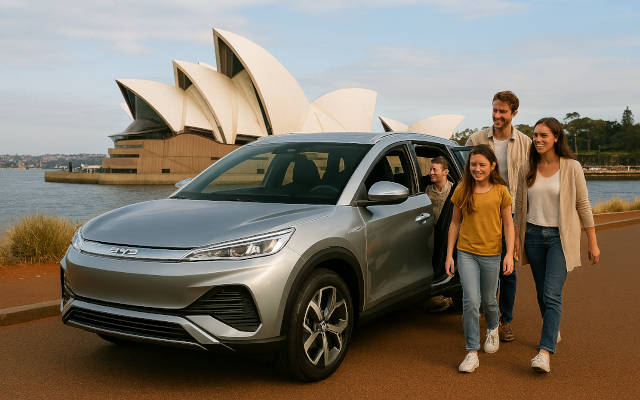 As Australia's electric vehicle fleet grows, the government is considering a road user charge to replace dwindling fuel excise revenue. A proposal from New South Wales suggests a fee of 2.97 cents per kilometre for battery EVs, with collection potentially based on distance driven. Critics worry this will hinder the clean transport transition, arguing the charge should apply to all vehicles, not just EVs.
As Australia's electric vehicle fleet grows, the government is considering a road user charge to replace dwindling fuel excise revenue. A proposal from New South Wales suggests a fee of 2.97 cents per kilometre for battery EVs, with collection potentially based on distance driven. Critics worry this will hinder the clean transport transition, arguing the charge should apply to all vehicles, not just EVs. Rivian R4 And R5 Will Be Lower-Cost 'Siblings' Than R2 And R3, CEO Says
25 Aug 2025 | Synopsis
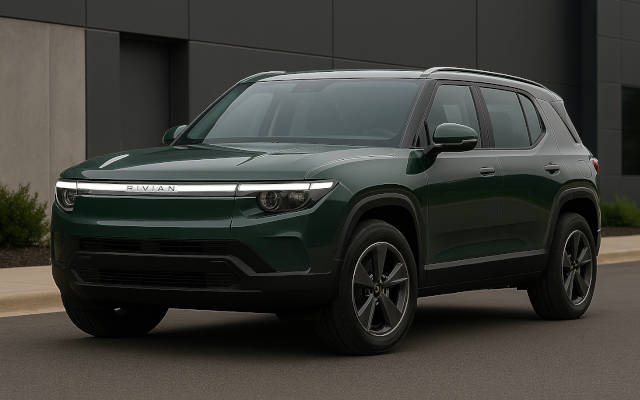 Rivian CEO RJ Scaringe reveals R4 & R5 EVs in early concept stage as "sibling set" sharing new platform, priced lower than upcoming R2/R3 models ($45K starting). While Tesla's Musk calls cheap EVs "pointless" without autonomy, Rivian pursues full-line automaker strategy with mainstream affordable EVs. No engineering teams assigned yet - purely conceptual stage.
Rivian CEO RJ Scaringe reveals R4 & R5 EVs in early concept stage as "sibling set" sharing new platform, priced lower than upcoming R2/R3 models ($45K starting). While Tesla's Musk calls cheap EVs "pointless" without autonomy, Rivian pursues full-line automaker strategy with mainstream affordable EVs. No engineering teams assigned yet - purely conceptual stage.
 Si Exclusive
Si Exclusive
Hydrogen's Flight Path: Fuel Cells, Turbines, and the Economics of Clean Aviation
10 Oct 2025 |  Aviation is shifting from Jet A to four fuel systems: electricity, hydrogen (fuel cell and combustion), SAF, and petroleum. Fuel cells suit short-haul aircraft; hydrogen combustion may power long-range jets. SAF bridges legacy fleets. Hydrogen costs - $5-$7/kg today, possibly $2/kg by 2040 - impact ticket prices and infrastructure decisions. Airport authorities, airlines, and governments will share deployment costs. Each fuel has distinct environmental pros and cons shaping aviation's net-zero future.
Aviation is shifting from Jet A to four fuel systems: electricity, hydrogen (fuel cell and combustion), SAF, and petroleum. Fuel cells suit short-haul aircraft; hydrogen combustion may power long-range jets. SAF bridges legacy fleets. Hydrogen costs - $5-$7/kg today, possibly $2/kg by 2040 - impact ticket prices and infrastructure decisions. Airport authorities, airlines, and governments will share deployment costs. Each fuel has distinct environmental pros and cons shaping aviation's net-zero future.
Ferrari Elettrica: Electrified, Not Tamed
09 Oct 2025 |  Ferrari's Elettrica EV delivers over 1,000 hp via quad motors, hitting 0-100 km/h in 2.5s with a 330+ mile range. Its 122 kWh battery sits low for balance, paired with active suspension and rear steering. Designed by LoveFrom, the four-door GT aims to preserve Ferrari's emotional DNA. Priced around $580K, it launches in 2026 in Europe and the U.S., with hybrids and ICE models still dominating until 2030
Ferrari's Elettrica EV delivers over 1,000 hp via quad motors, hitting 0-100 km/h in 2.5s with a 330+ mile range. Its 122 kWh battery sits low for balance, paired with active suspension and rear steering. Designed by LoveFrom, the four-door GT aims to preserve Ferrari's emotional DNA. Priced around $580K, it launches in 2026 in Europe and the U.S., with hybrids and ICE models still dominating until 2030
 11 Oct 2025 13:45:11 UTC |
RECENT PODCASTS
BYD Soars - Cheaper Tesla Models - The Bolt is Back - Rivian
SEARCH RSSTREAM
 29 New Postings In Past 24 Hours
29 New Postings In Past 24 Hours
Category:mobility
Region:Europe
Date:10 Oct 2025
Category:energy
Region:Global
Date:10 Oct 2025
Category:mobility
Region:SoAmerica
Date:10 Oct 2025
Category:energy
Region:NoAmerica
Date:10 Oct 2025
Category:mobility
Region:NoAmerica
Date:10 Oct 2025
Category:finance
Region:AsiaPacific
Date:10 Oct 2025
Category:policy
Region:NoAmerica
Date:10 Oct 2025
Category:finance
Region:NoAmerica
Date:10 Oct 2025
Category:mobility
Region:AsiaPacific
Date:10 Oct 2025
Category:policy
Region:NoAmerica
Date:10 Oct 2025